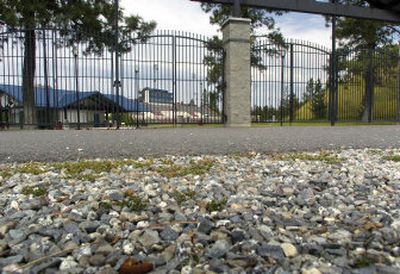Councilman pushing sale of Albi

Spokane City Councilman Brad Stark has submitted a resolution authorizing the sale of Joe Albi Stadium, even though it appears he lacks council support.
Stark’s proposal has the backing of Mayor Jim West. Both have argued the stadium is a drain on the city’s ailing budget, which is facing more cuts in police, fire and other services next year.
“I don’t think the rest of us are there yet,” said Councilman Al French, who has been meeting with other government officials to find ways to preserve the 55-year-old landmark in northwest Spokane.
Council consideration is tentatively set for Monday during the 6 p.m. legislative session in Council Chambers at City Hall. The session will be televised on Cable Channel 5.
Council President Dennis Hession said the proposed sale would leave Spokane public schools without a stadium for high school football. Selling the stadium could undermine a long-term relationship between the city and school district for sharing facilities for high school sports, swimming programs and city recreation classes.
The sale could leave schools without a lighted field for night games starting in 2006.
Voters in 1999 approved the use of Albi’s grounds for an amateur sports complex with an 81 percent yes vote. The parks department has more than $3.5 million tied up in the stalled sports complex project.
To move that money to another project would require a public vote, Hession said, and it is unclear what would happen if the public said “no” to moving the money after the property were sold.
Councilwoman Mary Verner said, “I can’t see the justification for it (the sale) at this point.”
“The proposal doesn’t accomplish either short- or long-term goals,” she said. “Plus, the voters have a role in this.”
Council members Cherie Rodgers, Bob Apple and Joe Shogan also have expressed opposition to the sale.
An independent appraisal of the stadium and its 89.6 acres of land shows that it could net about $2.3 million if sold for as many as 700 single-family homes. The appraisal included deductions for demolition of the stadium and traffic improvements at Wellesley Avenue and Assembly Street.
County tax records show an assessed valuation of $15 million for the land, but that apparently is based on a higher use such as commercial development. Scot Auble, a private Spokane appraiser, said it’s not unusual for county tax records to be inconsistent with market value, especially when the assessment involves public property that does not yield taxes.
To sell the stadium now, the city would also have to cash out sports club owner Bobby Brett, who leases the stadium for his Spokane Shadow soccer team. A cash-out of $450,000 was negotiated earlier this summer, but the deal was subject to a July deadline.
Albi costs the city $100,000 a year in operating expenses. New turf may be needed in 2007. Stadium bond improvements over the years are being repaid at a cost of $300,000 in 2006, and then $170,000 a year starting in 2007. Proceeds from a sale would be used to offset the bond payments.
The city would net as little as $389,000 after bonds and other costs are paid.
At Monday’s council briefing, Stark warned that if council members vote the sale down, they would be responsible for making up those funds, which are already included in the mayor’s proposed 2006 budget.
Apple responded that he didn’t like being threatened, adding that there are other solutions to the Albi issue.
During a school board retreat last week, Spokane Public Schools Superintendent Brian Benzel told the board the future of Albi hinges on city actions. He said the district was told a year ago by city officials it could count on using Albi until 2013. Benzel took exception to characterizations that the district had not planned for another football venue.
“We’ve done our due diligence up to now,” he told the board.
“I’m not angry at the city. Circumstances change,” he said.
A backup plan is to play daytime games on high school practice fields, but those fields don’t have adequate grass or bleachers for potentially hundreds of fans.
“We need time in getting grass fields up,” Benzel told the board.
Board member Christie Querna said, “If the city can’t afford to pay $200,000 to $300,000 a year (in Albi costs), what makes them think we can?”